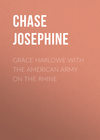Kitabı oku: «Marjorie Dean, High School Junior», sayfa 8
“Well, what’s the verdict?” inquired Rowena, satirically pleasant. Her manner toward dignified Ellen verged on insolence.
“The junior team are willing to postpone the game,” informed Ellen briefly. She intended the interview to be a short one.
“They know on which side their bread is buttered,” laughed the other girl. “I suppose they weren’t specially delighted. Did they make much fuss before they gave in?”
“As I have delivered my message, I will say ‘good afternoon,’” Ellen returned stiffly.
“Don’t be in too much of a hurry,” drawled Rowena. “When I ask a question, I expect an answer.”
“Good afternoon.” Ellen wheeled and walked calmly from the locker room. Rowena’s expectations were a matter of indifference to the disgusted manager. She, at least, was not to be bullied.
Mignon La Salle laughed unpleasantly. “You were foolish to waste your breath on her.” She wagged her black head in the direction of the door, which had just closed behind Ellen. “You didn’t impress her that much.” She snapped her fingers significantly.
Smarting under the dignified snubbing Ellen had administered, Rowena hailed Mignon as an escape valve. “You keep your remarks to yourself,” she blustered. “How dare you stand there laughing and snapping your fingers? No wonder people say you’re two-faced and tricky. You’re so deceitful you don’t know your own mind. One minute you come whining to me about this Seymour snip, the next you take sides with her.”
“I wasn’t standing up for her and you know it,” muttered Mignon. As always, Rowena’s brutally expressed opinion of herself had a vastly chastening effect on the designing French girl. Rowena never minced matters. She delivered her remarks straight from the shoulder, indifferent to whether they pleased or displeased. Mignon’s disregard for sincerity and honor suited her admirably. She was equally devoid of these virtues. Mignon made an excellent confederate. Still, she had to be kept in her place. Her very love of subtle intrigue made plain speaking abhorrent to her. On occasions when Rowena mercilessly held before her the mirror of truth, she invariably retired in confusion. At the same time she entertained a wholesome respect for the one who thus dared to do it. This explained to a great extent the strong influence which Rowena exerted over her. She was not happy in this new friendship. More than once she had meditated ending it. Fear of the other’s furious retaliation was a signal preventative. Rowena, as a friend, was greatly to be preferred to Rowena as an enemy.
As she sulkily viewed the Titian-haired tyrant, who knew her too well for her own peace of mind, she wondered why she had not flung back taunt for taunt. Perhaps Rowena made a shrewd guess regarding her thoughts. Adopting a milder tone she said brusquely: “Oh, quit pouting and come along. None of these stupid girls are worth quarreling over. I suppose that Marjorie Dean, the big baby, told Miss Seymour something hateful about me. That’s the reason she acted so frosty.”
At the mere mention of Marjorie’s name Mignon’s elfish face grew dark. She and Rowena had at least one bond in common, they both despised Marjorie Dean. Mignon reflected that no scheme she had devised for humbling the former had ever borne lasting fruit. Rowena might succeed where she had failed. Rowena had sworn reprisal for the affair of the algebra problem. Undoubtedly, she would seize upon the first opportunity for retaliation. With such a glorious prospect ahead of her, Mignon craftily decided to stick to Rowena and share in her triumph.
CHAPTER XVI – A TINY CLUE
The end of the week following Thanksgiving brought the two temporarily disabled sophomore basket ball players back to school. The day after their return a notice appeared on the bulletin board stating that the junior-sophomore game would be played on the next Saturday afternoon. From all sides it received profound approbation and the recent postponement of the contest served to give it greater importance. The sophomore team had been highly delighted with the respite, and gratefully accorded the credit to Rowena Farnham, who reveled in her sudden advance in popularity.
The juniors had little to say to the world at large. Among themselves they said a great deal. One and all they agreed that the victory of the coming game must be theirs. They yearned to show the public that in postponing the game they had merely postponed the glory of winning it. Though they knew the strength of the opposing team, they confidently believed themselves to be even stronger. How it happened, none of them were quite able to explain, but when the fateful hour of conflict arrived the victor’s crown was wrested from them. A score of 18-16 in favor of the sophomores sent them off the field of defeat, crestfallen but remarkably good-natured, considering the circumstances.
Behind the closed door of their dressing room, with the jubilant shouts of the sophomores still ringing in their ears, they proceeded to take stock of themselves and their triumphant opponents.
“There is no use in talking, that Rowena Farnham is a wonderful player,” was Muriel Harding’s rueful admission. “She could almost have won the game playing alone against us.”
“She’s a very rough player,” cried Daisy Griggs. “She tears about the floor like a wild Indian. She gave me two or three awful bumps.”
“Still, you can’t say she did anything that one could make a fuss about,” said Rita Talbot slowly. “I guess she’s too clever for that.”
“That’s just it,” chimed in Susan Atwell crossly. “She’s as sharp as a needle. She goes just far enough to get what she wants without getting into trouble by it. Anyway, they didn’t win much of a victory. If that last throw of Marjorie’s hadn’t missed the basket we’d have tied the score. It’s a pity the game ended right there. Three or four minutes more were all we needed.”
“I was sure I’d make it,” declared Marjorie rather mournfully, “but a little before, in that big rush, I was shoved forward by someone and nearly fell. I made a slide but didn’t quite touch the floor. All my weight was on my right arm and I felt it afterward when I threw the ball.”
“Who shoved you forward? That’s what I’d like to know,” came suspiciously from Susan. “If – ”
“Oh, it wasn’t anyone’s fault,” Marjorie hastened to assure her. “It was just one of those provoking things that have to happen.”
“Listen to those shrieks of joy,” grumbled Muriel, as a fresh clamor began out in the gymnasium. “Oh, why didn’t we beat them?”
“Never mind,” consoled Marjorie. “There’d be just as much noise if we had won. You can’t blame them. Next time it will be our turn. We’ve still three more chances. Now that we’ve played the sophs once, we’ll know better what to do when we play them again. We really ought to go out there and congratulate them. Then they would know that we weren’t jealous of them.”
“I’d just as soon congratulate a big, striped tiger as that Rowena Farnham. She makes me think of one. She has that cruel, tigerish way about her. Ugh! I can’t endure that girl.” Muriel Harding made a gesture of abhorrence.
“Come in,” called Marjorie as four loud knocks beat upon the door. “It’s Jerry, Connie and Irma,” she explained, as the door opened to admit the trio.
“Better luck next time,” cheerfully saluted Jerry Macy. “You girls played a bang-up, I mean, a splendid game. I was sure you’d tie that score. You had a slight accident, didn’t you, Marjorie?”
“Yes. Did you notice it?” Marjorie glanced curiously at Jerry’s imperturbable face.
“I always notice everything,” retorted Jerry. “I hope – ”
Marjorie flashed her a warning look. “It wasn’t anything that could be avoided,” she answered with a finality that Jerry understood, if no one else did. “I move that we go down to Sargent’s and celebrate our defeat,” she quickly added. “Have a seat, girls. It won’t take us long to get into our everyday clothes.”
“Such a shame,” bewailed Daisy Griggs. “After we’ve gone to the trouble of having these stunning suits made, then we have to be robbed of a chance to parade around the gym as winners. Anyway, they’re a whole lot prettier than the sophs’ suits. I didn’t like that dark green and blue they had as well as ours.”
“They stuck to the sophomore colors, though,” reminded Rita. “It’s a wonder that Rowena Farnham didn’t appear in some wonderful creation that had nothing to do with class colors. It would be just like her.”
Despite their regret over losing the game, the defeated team, accompanied by Jerry, Constance, Irma and Harriet Delaney, who afterwards dropped in upon them, set off for the all-consoling Sargent’s in fairly good humor, there to spend not only a talkative session, but their pocket money as well.
It was not until Jerry, Constance and Marjorie had reluctantly torn themselves from their friends to stroll homeward through the crisp December air that Jerry unburdened herself with gusto.
“Marjorie Dean,” she began impetuously, “do you or don’t you know why you nearly fell down in that rush?”
“I know, of course,” nodded Marjorie. “Someone swept me forward and I almost lost my balance. It’s happened to me before. What is it that you are trying to tell me, Jerry?”
“That someone was Row-ena,” stated Jerry briefly. “Isn’t that so, Connie?”
“It looked that way,” Connie admitted. “I thought she played very roughly all through the game.”
“If it were she, I don’t believe she did it purposely,” responded Marjorie. “Even if she did, I’m not going to worry about it. I rather expected she might. Mignon used to do that sort of thing. You remember what a time we had about it last year. But her team and ours were concerned in it. That’s why I took it up. As it was only I to whom it happened this time, I shall say nothing. I don’t wish to start trouble over basket ball this year. If I spoke of it to Ellen she would take it up. You know what Rowena Farnham would say. She’d declare it was simply a case of spite on my part. That I was using it only as an excuse for not being able to throw that last ball to basket. Then she’d go around and tell others that we were whining because we were beaten in a fair fight. I might better say nothing at all. The only thing for us to do is to keep our own counsel and win the next game.”
“I guess your head is level,” was Jerry’s gloomy admission. She was as much distressed over their defeat as were the juniors themselves.
“Marjorie’s head is always level,” smiled Constance Stevens. “I am almost certain that you girls will win the next game. Luck just happened to be with the sophomores to-day. I don’t think they work together as well as you. Miss Farnham is a much better player than the others. Still, I imagine that she might not always do so well as she did in this game. If she saw that things were going against her, she would be quite likely to get furiously angry and lose her head.” Quiet Constance had been making a close study of Rowena during the game. Raised in the hard school of experience, she had considerable insight into character. She seldom criticized openly, but when she did, her opinions were received with respect.
“Your head’s on the same level plane with Marjorie’s, Connie,” agreed Jerry. “I think, too, that Rowena Farnham would be apt to make blunders if she got good and mad. Speaking of getting mad reminds me that Lucy Warner is pouting about those suits of ours. She told Harriet to-day that she thought they were simply hideous. Harriet said that she wouldn’t go in with you girls when you ordered them. She considered them a waste of money. Said if she had one, she’d never get a chance to wear it. Pleasant young person, isn’t she?”
“Perhaps she couldn’t afford to have one,” remarked Constance thoughtfully. “You know her mother is a widow and supports the two of them by doing plain sewing. I imagine they must be quite poor. They live in a tiny house on Radcliffe Street, and Lucy never goes to even the high school parties, or to Sargent’s, or any place that costs money. She is a queer little thing. I’ve tried ever so many times to be nice to her, but she always snubs me. Maybe she thinks I’m trying to patronize her. I can’t help feeling sorry for her. You see I know so well what it means to be very poor – and proud,” ended Constance, flushing.
“She’s a born grouch,” asserted Jerry. “She’s been one ever since I’ve known her. Even in grammar school she was like that. She’s always had a fixed idea that because she’s poor everyone looks down on her. It’s too bad. She’s very bright in her studies, and she’d be quite pretty if she didn’t go around all the time looking ready to bite.”
“Isn’t it funny?” mused Marjorie. “I’ve never noticed her particularly or thought much about her until she made the team as a sub. Since then I’ve tried several times to talk to her. Each time she has acted as though she didn’t like to have me speak to her. I thought maybe she might be a friend of Mignon’s. But I suppose it’s just because she feels so ashamed of being poor. As if that mattered. We ought to try to make her think differently. She must be terribly unhappy.”
“I doubt it,” contradicted Jerry. “Some people enjoy being miserable. Probably she’s one of that sort. As I said before, ‘it’s too bad.’ Still, one doesn’t care to get down on one’s knees to somebody, just because that somebody hates herself. She can’t expect people are going to like her if she keeps them a mile away from her.”
“You are both right,” commented Constance. “She ought to be made to understand that being poor isn’t a crime. But you can’t force that into her head. The only way to do is to wait until a chance comes to prove it to her. We must watch for the psychological moment.” Her droll utterance of the last words set her listeners to giggling. Miss Merton was prone to dwell upon that same marvelous psychological moment.
That evening, as Marjorie diligently studied her lessons, the queer, green-eyed little junior again invaded her thoughts. A vision rose of her thin, white face with its pointed chin, sensitive, close-lipped mouth, and wide eyes of bluish-green that frequently changed to a decided green. What a curious, secretive face she had. Marjorie wondered how she had happened to pass by so lightly such a baffling personality. She charitably determined to make up for it by learning to know the true Lucy Warner. She upbraided herself severely for having been so selfish. Absorbed in her own friends, she had neglected to think of how much there was to be done to make the outsiders happy.
Entering the study hall on Monday morning she cast a swift glance toward Lucy’s desk. She was rather surprised to note that the blue-green eyes had come to rest on her at the same instant. Marjorie smiled and nodded pleasantly. The other girl only continued to stare fixedly at her, but made no answering sign. Forewarned, Marjorie was not specially concerned over this plain snub. She merely smiled to herself and decided that the psychological moment had evidently not yet arrived.
Slipping into her seat she was about to slide her books into place on the shelf under her desk, when one hand came into contact with something that made her color rise. She drew a sharp breath as she brought it to light. So the Observer was at work again! With a sudden, swift movement of her arm she shoved her find back to cover. Casting a startled look about the study hall, she wondered if whoever had placed it there were now watching her. Strangely enough, the only pair of eyes she caught fastened upon her belonged to Mignon La Salle. In them was a light of brooding scorn, which plainly expressed her opinion of Marjorie.
“Could Mignon be the mysterious Observer?” was again the question that assailed Marjorie’s mind. She longed to read the letter, but her pride whispered, “not now.” She would save it until school was over for the day. She and Captain would read it together in the living room.
It was a long, weary day for the impatient little girl. At noon she carried the dread missive home with her, gravely intrusting it to her Captain’s keeping. “It’s another stab from the Observer,” she explained soberly. “I haven’t opened it. We will read it together when I come home this afternoon. I don’t care to read it now.”
She returned home that afternoon to find her mother entertaining callers. Despite her feverish impatience to have the thing over, she was her usual charming self to her mother’s friends. Nevertheless, she sighed with relief when she saw them depart. Seating herself on the davenport she leaned wearily against its cushioned back. The suspense of not knowing had told severely upon her.
“Now, Lieutenant, I think we are ready,” said Mrs. Dean cheerily. Taking the letter from a drawer of the library table, she sat down beside Marjorie and tore open the envelope. Her head against her Captain’s shoulder, Marjorie’s eyes followed the Observer’s latest triumph in letter writing:
“Miss Dean:
“Last Saturday showed very plainly that you could not play basket ball. I knew this long ago. Several others must now know it. It would serve you right if you were asked to resign from the team. If you had been thinking less about yourself and more about the game, you might have tied the score and not disgraced the juniors. You are a menace to the team and ought to be removed from it. As I am not alone in this opinion, I imagine and sincerely hope that you will soon receive your dismissal. If you had any honor in you, you would resign without waiting to be asked. But remember that a coward is soon worsted in the fight. Prepare to meet the inevitable.
“The Observer.”
Without speaking, Marjorie turned again to the first page of the letter, re-reading thoughtfully the entire communication. “This letter tells me something which the others didn’t,” she said.
“It tells me that it is high time to stop such nonsense.” Mrs. Dean’s tones conveyed righteous indignation. “The whole thing is simply outrageous.”
“It can’t be stopped until we know who is writing these letters,” reminded Marjorie. “But I think I have a tiny clue. That sentence about disgracing the juniors would make it seem that a junior wrote them. No one would mention it who wasn’t a junior. I’ve tried not to believe it, but now I am almost certain that Mignon wrote them. She would like more than anyone else to see me lose my place on the team. Yes, Mignon and the Observer must be very closely related.”
CHAPTER XVII – IN TIME OF NEED
Three days later Marjorie’s theory seemed destined to prove itself correct. Ellen Seymour came to her, wrath in her eye. “See here, Marjorie,” she burst forth impulsively, “if Miss Davis sends for you to meet her in the gym after school, let me know. I’m going there with you. Yesterday while you girls were at practice she stood there watching you. Do you remember?”
“Yes. I noticed her. She stared at me so hard she made me nervous and I played badly. She has always had that effect on me. Last year when she managed the team she was fond of watching me. She used to criticize my playing, too, and call out one thing to me just when I knew I ought to do another. She was awfully fussy. I hope she isn’t going to begin it again this year. I thought she had left everything to you.”
“So did I,” retorted Ellen grimly. “It seems she hasn’t. Someone, you can guess who, went to her after the game and said something about your playing. She came to me and said: ‘I understand there is a great deal of dissatisfaction on the part of the juniors over Miss Dean’s being on the junior team.’ You can imagine what I said. When I saw her in the gym after school I knew she had an object. But leave things to me. I know a way to stop her objections very quickly. If she sends for you, go straight to the junior locker room from the study hall and wait there for me. If she doesn’t send for you, then you’ll know everything is all right. Remember now, don’t set foot out of that locker room until I come for you.” With this parting injunction Ellen hurried off, leaving Marjorie a victim to many emotions.
So the Observer’s, or rather Mignon’s, prophesy bordered on fulfillment. Mignon and the few juniors who still adhered to the La Salle standard had made complaint against her to Miss Davis in the name of the junior class. As a friend of Miss Merton, Miss Davis had always favored the French girl. Last year it had been whispered about that her motive in creating a second sophomore team had arisen from her wish to help Mignon’s fortunes along. No doubt she had been very glad to listen to this latest appeal on Mignon’s part.
But Marjorie was only partially correct in her conclusions. Though it was, indeed, true that Mignon had besieged Miss Davis with a plea that Marjorie be removed from the team, no other member of the junior class had accompanied her. She was flanked by the far more powerful allies, Charlotte Horner and Rowena Farnham. The plan of attack had originated in Rowena’s fertile brain as the result of a bitter outburst against Marjorie on Mignon’s part. It was directly after the game that she had stormed out her grievances to Rowena and Charlotte. Personally, Rowena cared little about Mignon’s woes. Her mischief-making faculties were aroused merely on Marjorie’s account. Had it been Susan, or Muriel against whom Mignon raved she would have laughed and dubbed her friend, “a big baby.” But Marjorie – there was a chance to even her score.
“You just let me manage this,” Rowena had declared boastfully. “This Miss Davis is easy. She’s a snob. So is Miss Merton. If they weren’t they’d have put you in your place long ago. They can see through you. It’s money that counts with both of them. I’ve made it a point right along to be nice to Miss Davis. In case that frosty Miss Seymour tried to make trouble for me, I knew I needed a substantial backing. Now I’ll ask her to my house to dinner to-morrow night. If she can’t come, so much the better for me. If she can, so much the better for you. Of course you’ll be there, too. Then we’ll see what we can do. You ought to be very grateful to me. I expect she’ll bore me to death. I’m only doing it for your sake.”
Rowena was too crafty not to hang the heavy mantle of obligation on Mignon’s shoulders. Thus indebted to her, Mignon would one day be reminded of the debt. As a last perfect touch to her scheme she had shrewdly included Charlotte Horner in the invitation. Providentially for Mignon, Miss Davis had no previous engagement. So it fell about that Rowena became hostess to three guests. At home a young despot, who bullied her timid little mother and coaxed her indulgent father into doing her will, she merely announced her intention to entertain at dinner and let that end it. The final results of that highly successful dinner party were yet to be announced.
Unwittingly, however, Miss Davis had blundered. In order to strengthen her case she had purposely complained of Marjorie to Ellen Seymour. Knowing nothing of Ellen’s devotion to the pretty junior, she had not dreamed that Ellen would set the wheels in motion to defeat her. She was in reality more to be pitied than blamed. Of a nature which accepted hearsay evidence, declining to go below the surface, it is not to be wondered at that Rowena’s clever persuasion, backed by Mignon’s and Charlotte’s able support, caused her to spring to the French girl’s aid. She was one of those aggravating persons who refuse to see whatever they do not wish to see. She was undoubtedly proficient in the business of physical culture. She was extremely inefficient in the art of reading girls. Sufficient unto herself, she, therefore, felt no compunction in sending forth the word that should summon Marjorie to the gymnasium, there to be deprived of that which she had rightfully earned.
Like many other days that had come to poor Marjorie since the beginning of her junior year, suspense became the ruling power. Two things she knew definitely. Ellen Seymour was for her. Miss Davis against her. The rest she could only guess at, losing herself in a maze of troubled conjecture. Judge her surprise when on reaching the locker room, she found not only Ellen awaiting her, but her teammates as well. They had made a most precipitate flight from the study hall in order to be in the locker room when she arrived.
“Why, Ellen! Why, girls!” she stammered. A deeper pink rushed to her cheeks; a mist gathered in her eyes as she realized the meaning of their presence. They had come in a body to help her.
“We’re here because we’re here,” trilled Captain Muriel Harding. “In a few minutes we’ll be in the gym. Then someone else will get a surprise. Are we ready to march? I rather think we are. Lead the procession, Ellen.”
“Come on, Marjorie, you and I will walk together. Fall in, girls. The invincible sextette will now take the trail.”
Amid much laughter on their part and openly curious glances from constantly arriving juniors who wondered what was on foot, the six girls had swung off down the corridor before the curious ones found opportunity to relieve their curiosity.
“She’s not here yet,” commented Susan, as they entered the place of tryst. “Isn’t that too bad. I hoped she’d be on hand to see the mighty host advancing.”
“Here she comes,” warned Rita Talbot. “Now, for it.”









